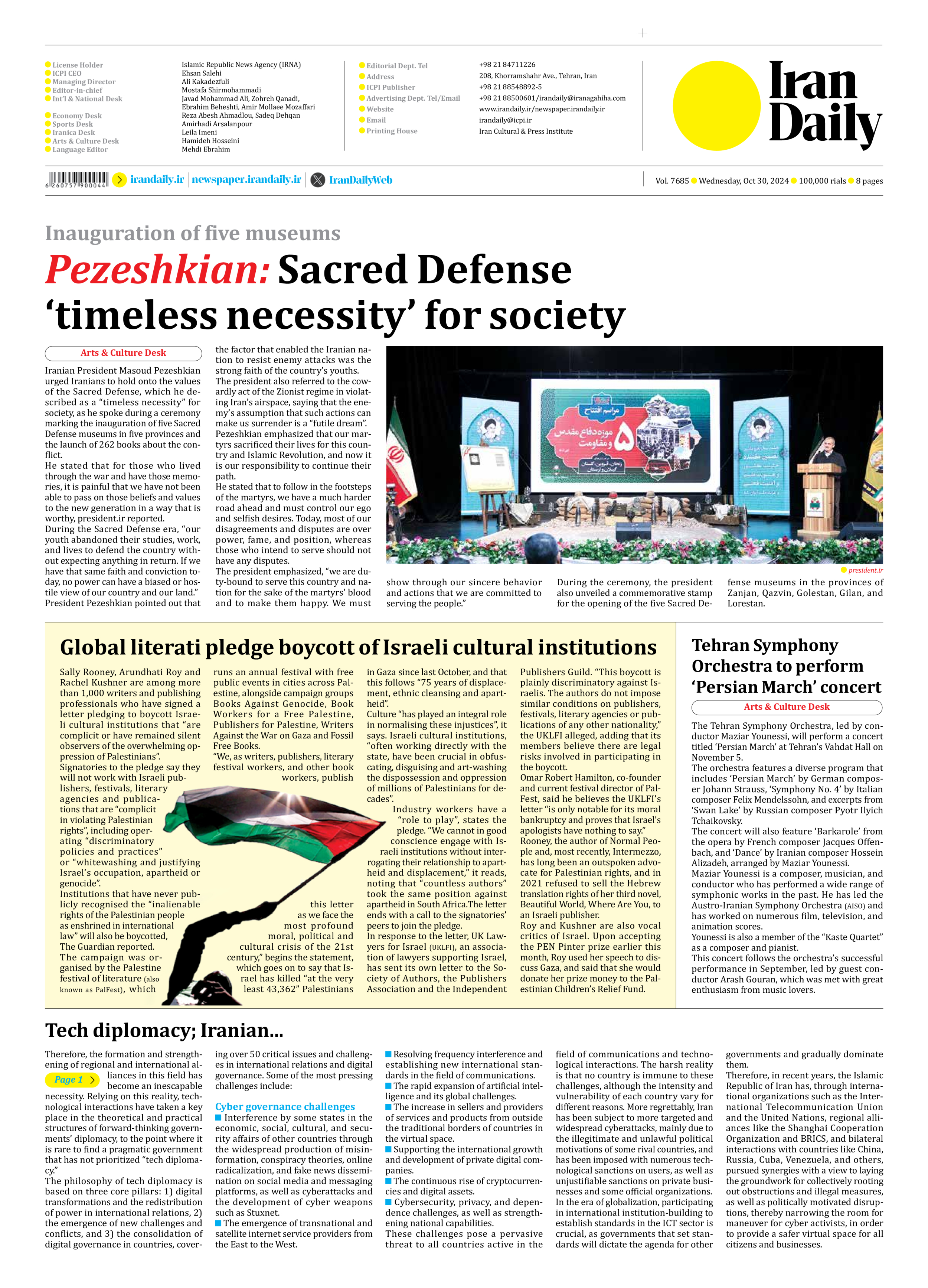
Tech diplomacy; Iranian...
Page 1
Therefore, the formation and strengthening of regional and international alliances in this field has become an inescapable necessity. Relying on this reality, technological interactions have taken a key place in the theoretical and practical structures of forward-thinking governments’ diplomacy, to the point where it is rare to find a pragmatic government that has not prioritized “tech diplomacy.”
The philosophy of tech diplomacy is based on three core pillars: 1) digital transformations and the redistribution of power in international relations, 2) the emergence of new challenges and conflicts, and 3) the consolidation of digital governance in countries, covering over 50 critical issues and challenges in international relations and digital governance. Some of the most pressing challenges include:
Cyber governance challenges
Interference by some states in the economic, social, cultural, and security affairs of other countries through the widespread production of misinformation, conspiracy theories, online radicalization, and fake news dissemination on social media and messaging platforms, as well as cyberattacks and the development of cyber weapons such as Stuxnet.
The emergence of transnational and satellite internet service providers from the East to the West.
Resolving frequency interference and establishing new international standards in the field of communications.
The rapid expansion of artificial intelligence and its global challenges.
The increase in sellers and providers of services and products from outside the traditional borders of countries in the virtual space.
Supporting the international growth and development of private digital companies.
The continuous rise of cryptocurrencies and digital assets.
Cybersecurity, privacy, and dependence challenges, as well as strengthening national capabilities.
These challenges pose a pervasive threat to all countries active in the field of communications and technological interactions. The harsh reality is that no country is immune to these challenges, although the intensity and vulnerability of each country vary for different reasons. More regrettably, Iran has been subject to more targeted and widespread cyberattacks, mainly due to the illegitimate and unlawful political motivations of some rival countries, and has been imposed with numerous technological sanctions on users, as well as unjustifiable sanctions on private businesses and some official organizations.
In the era of globalization, participating in international institution-building to establish standards in the ICT sector is crucial, as governments that set standards will dictate the agenda for other governments and gradually dominate them.
Therefore, in recent years, the Islamic Republic of Iran has, through international organizations such as the International Telecommunication Union and the United Nations, regional alliances like the Shanghai Cooperation Organization and BRICS, and bilateral interactions with countries like China, Russia, Cuba, Venezuela, and others, pursued synergies with a view to laying the groundwork for collectively rooting out obstructions and illegal measures, as well as politically motivated disruptions, thereby narrowing the room for maneuver for cyber activists, in order to provide a safer virtual space for all citizens and businesses.







